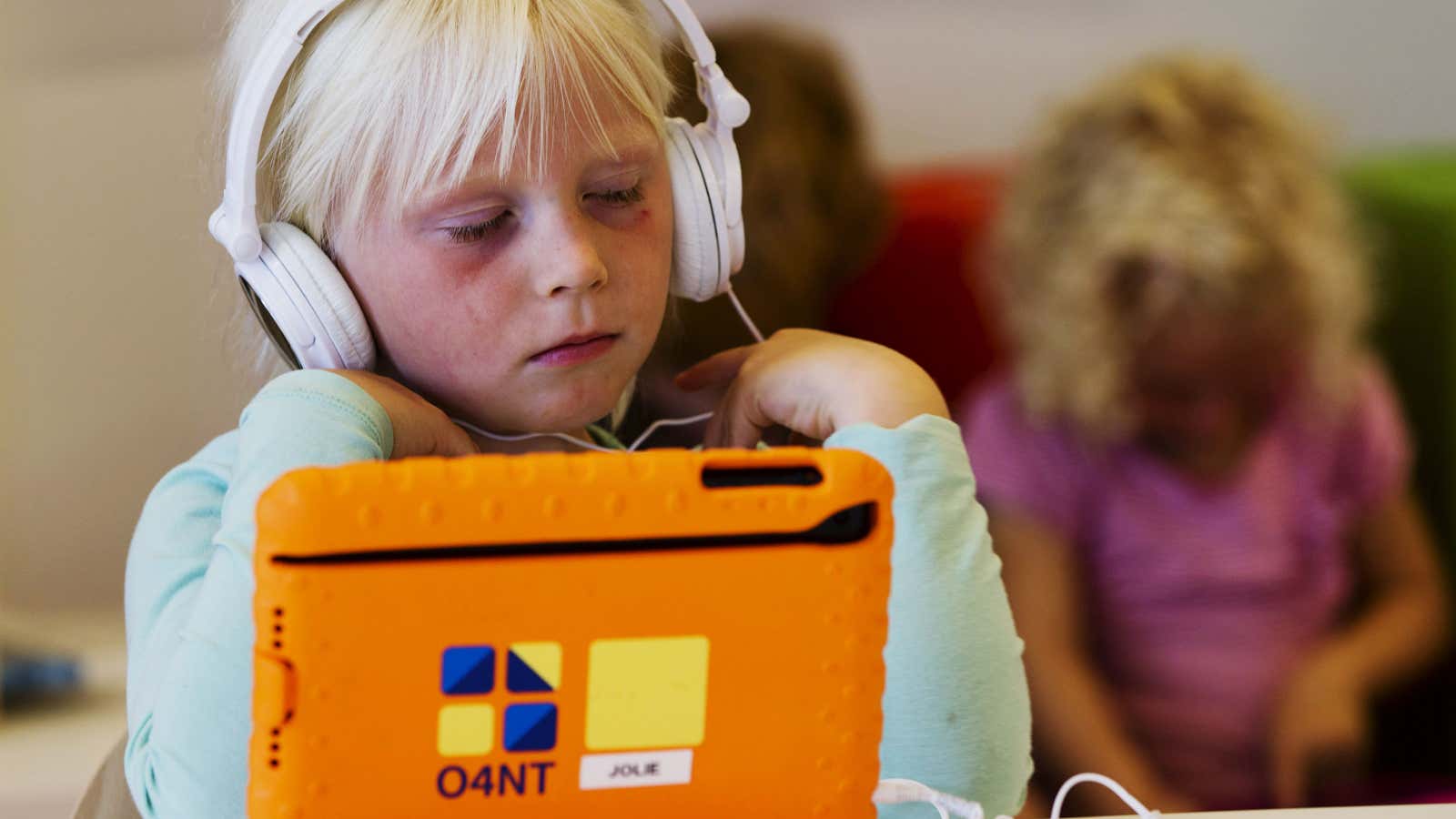How to limit children’s use of digital devices is a hot topic for many parents. They worry their children, aka the most connected generation ever, are too obsessed with looking at screens and interacting with apps, and are failing to interact meaningfully with their fellow human beings because they don’t have enough face-to-face communication.
Now there’s actual scientific evidence to suggest that these worried parents are on to something.
A study released last week by scientists at the University of California-Los Angeles (UCLA) suggests that children who take a break from digital devices may have better social skills than children who text, watch television, and play video games for several hours a day.
Psychologists looked at two sets of sixth-graders from a Southern California public school: 51 who lived together for five days at the Pali Institute, a nature and science camp near Los Angeles that did not permit use of electronic devices of any kind; and 54 others from the same school who made no adjustments to their usual screen habits. At the beginning and end of the study, the researchers evaluated both groups for their ability to recognize other people’s emotions in photos and videos. To measure this, they showed 48 photos of faces that were happy, sad, angry, or scared, and asked each child to identify the feelings of those in the pictures. The children also watched videos of actors and were instructed to describe the characters’ emotions.
The researchers found that those who attended the electronic device-free camp were substantially better at reading human emotions than their peers from the same school who continued their normal behavior. The control group spent an average of 4.5 hours a day texting, watching television, and playing video games.
The biggest change between the two groups was how they each interpreted the photos, researchers said. Those at the camp made an average of 9.41 errors at the end of the study, down from 14.02 at the beginning. The students who didn’t attend the camp recorded a significantly smaller change. The results went against popular understanding in recent years that more, not less, digital exposure can be beneficial for children’s learning.
“Many people are looking at the benefits of digital media in education, and not many are looking at the costs,” said Patricia Greenfield, a UCLA professor of psychology and senior author of the study, in a release about the study. “Decreased sensitivity to emotional cues—losing the ability to understand the emotions of other people—is one of the costs. The displacement of in-person social interaction by screen interaction seems to be reducing social skills.”
The study will be published in the October print edition of the Computers in Human Behavior journal.
